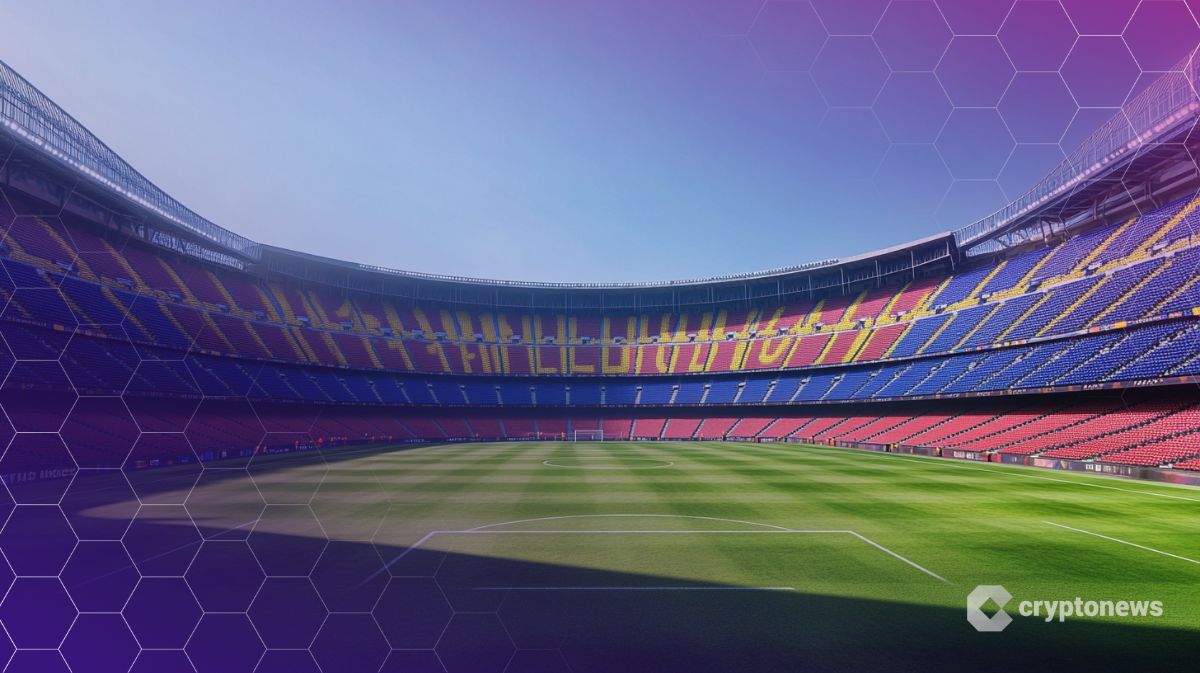
FC Barcelona has drawn sharp criticism after signing a three-year sponsorship agreement with Zero-Knowledge Proof (ZKP), a “little-known” blockchain startup registered in Samoa that had only dozens of social media followers when the deal was announced.
As first reported by the FT, the partnership has sparked accusations that the club is desperately chasing revenue while potentially exposing fans to financial risks through a company that offers minimal transparency into its operations or leadership.
The Catalan giant announced the agreement on November 15, making ZKP its official blockchain technology partner, despite the company’s thin digital footprint and offshore registration in a jurisdiction the European Union lists as a tax haven.
Critics have pointed to troubling connections, including controversial influencer Andrew Tate promoting zero-knowledge proof systems hours after the deal went public, with a version of his video featuring ZKP’s logo later distributed through the company’s Telegram channel.
Red Flags and Missing Details
ZKP introduced itself with its first post on X, which had only 33 followers, following only FC Barcelona, Bitcoin, and Andrew Tate.
The company held its first auction of 200 million coins on November 21. While ZKP’s website claims commitment to transparency, it provides scant detail about who runs the operation or who provided the $100 million financing it claims to have secured.
“Everyone asks, ‘Who’s behind this?’ As if knowing the names would make the code stronger. It won’t. We’re real — engineers, cryptographers, ex-founders, system killers. But we’re not playing the PR game,” the company states on its website.
Martin Calladine, author of No Questions Asked: How football joined the crypto con, described the information deficit as “deeply concerning” and warned that Barcelona fans could be lured into purchasing coins “that could easily end up being worthless.“
Former Barcelona board director Xavier Vilajoana questioned what due diligence the club conducted before finalizing the agreement.
“It is incredibly concerning that Barca’s leadership would choose to associate the club with a company whose background raises so many red flags,” he said, warning that partnering with a secretive crypto startup signals “desperation” at the financially stricken organization.
On November 26, Barcelona issued a statement distancing itself from ZKP’s newly announced FCB token, clarifying that the club has “no connection whatsoever” to it.
Financial Pressure Mounts
The ZKP partnership arrives as Barcelona grapples with severe financial pressure following an ill-judged player-buying spree between 2017 and 2019.
The club has been punished repeatedly for breaching Spanish football’s spending limit, with its latest accounts showing net debt of €469 million plus more than €900 million in stadium-related borrowing.
Barcelona has attempted to improve its finances through asset sales, including portions of its long-term television income. Still, costly delays to its stadium renovation have made revenue generation more urgent.
Barcelona’s other Web3 ventures have also faltered. The club booked a €141 million writedown last year after a deal to sell a stake in Barça Vision collapsed when investors failed to make payments.
Despite setbacks, Barcelona has maintained its digital asset initiatives, including selling its first NFT for $693,000 at Sotheby’s in July 2022 and launching FC Barcelona Fan Tokens through Chiliz and Socios in June 2020, which sold out for $1.3 million in less than 2 hours.
Growing Industry Trend
Crypto firms have rushed to sponsor football clubs in recent years. However, many deals have ended in acrimony, with Inter Milan, Roma, Chelsea, and Atlético Madrid among clubs that entered agreements that were terminated early.
Despite cautionary tales, the trend continues to accelerate. Paris Saint-Germain revealed in May 2025 that it had become the first sports entity to adopt a Bitcoin treasury strategy.
A Sport Quake study found that football accounted for 43% of all crypto and digital asset sponsorships in the 2024/25 season, representing a 64% year-over-year increase.
Recent partnerships include Kadena’s four-year agreement with the Croatian Football Federation in February and Tether’s acquisition of a minority stake in Juventus FC.
Barcelona’s partnership with ZKP nevertheless stands apart for the opacity surrounding the company and the speed at which red flags emerged.




